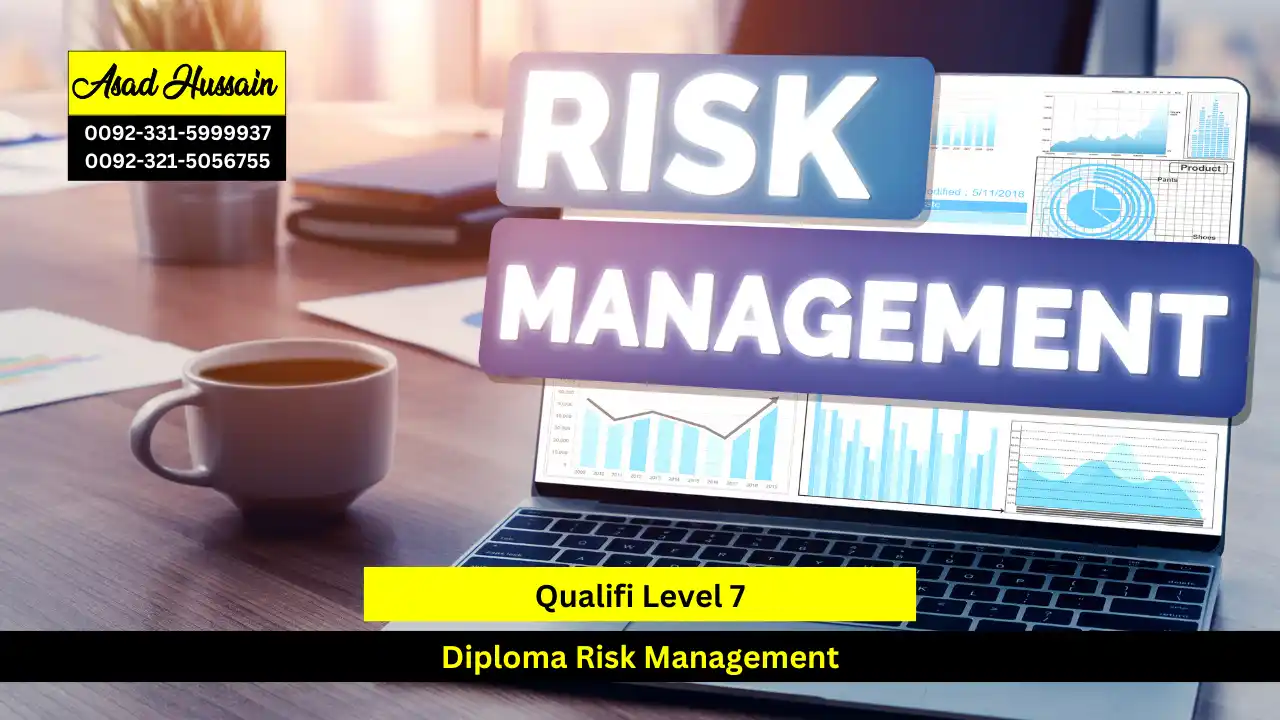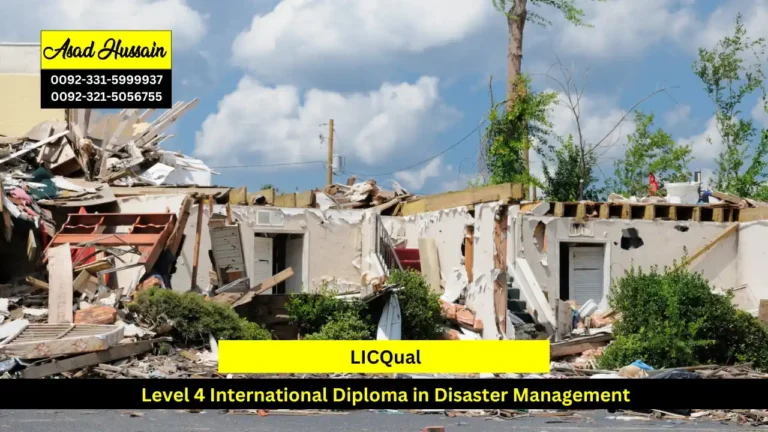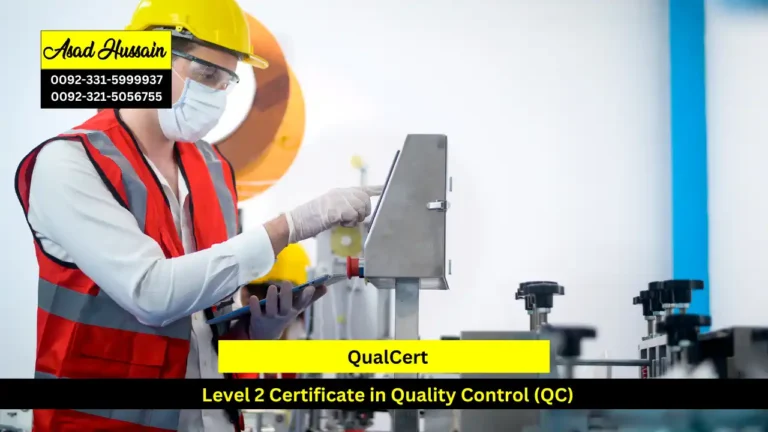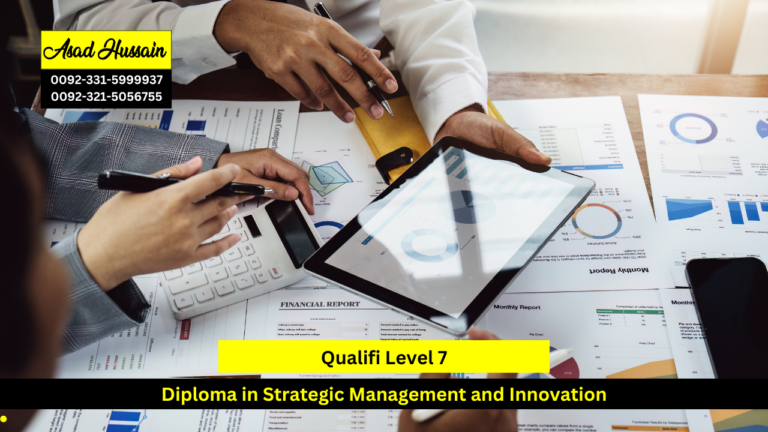In today’s unpredictable and rapidly changing business landscape, the ability to identify, assess, and manage risk is more critical than ever. The Qualifi Level 7 Diploma in Risk Management is a comprehensive and advanced qualification designed to equip professionals with the expertise needed to navigate and mitigate risks effectively. This diploma is an excellent choice for those looking to deepen their understanding of risk management and advance their careers in this vital field.
The Qualifi Level 7 Diploma in Risk Management is an advanced-level qualification equivalent to a Master’s degree. It is designed for professionals seeking to enhance their strategic and practical skills in risk management. This diploma provides a thorough understanding of risk management principles, methodologies, and best practices, preparing graduates to manage risks in various business contexts effectively.
The diploma is typically delivered through a blend of online and in-person sessions, offering flexibility for working professionals. Assessments include written assignments, case studies, practical projects, and examinations, ensuring a comprehensive evaluation of your skills and knowledge.
Program Highlights
The Qualifi Level 7 Diploma in Risk Management consists of 120 credits for the completed qualification.
Mandatory Units
- Principles of Risk Management
- Strategic Risk Management
- Responsible Leadership and Governance
- Organisational and Environmental Risk
- Risk Analysis and Modelling
- Advanced Research Methods in Risk Management
The qualification has been designed to be accessible without artificial barriers that restrict access. For this qualification, applicants must be aged 19 or over.
In the case of applicants whose first language is not English, then IELTS 6 (or equivalent) is required. International qualifications will be checked for appropriate enrolment to UK higher education postgraduate programmes where applicable. Applicants are normally required to produce two supporting references, at least one of which should preferably be academic.
1. Principles of Risk Management
- Understand the foundational principles and concepts of risk management.
- Identify different types of risks and their potential impact on organizations.
- Apply risk management processes and frameworks to identify, assess, and prioritize risks.
- Develop risk mitigation strategies and contingency plans.
- Evaluate the effectiveness of risk management practices and continuously improve them.
2. Strategic Risk Management
- Understand the strategic role of risk management in achieving organizational goals.
- Align risk management strategies with the overall strategic objectives of the organization.
- Develop and implement risk management policies at a strategic level.
- Integrate risk management into strategic planning and decision-making processes.
- Assess and manage strategic risks that can impact long-term organizational success.
3. Responsible Leadership and Governance
- Understand the principles of responsible leadership and corporate governance in the context of risk management.
- Develop leadership skills to foster a risk-aware culture within the organization.
- Implement governance structures and practices that support effective risk management.
- Ensure compliance with legal, ethical, and regulatory requirements in risk management.
- Evaluate the role of leadership and governance in managing and mitigating risks.
4. Organisational and Environmental Risk
- Identify and assess organizational risks, including operational, financial, and reputational risks.
- Understand environmental risks and their impact on organizations.
- Develop and implement strategies to manage organizational and environmental risks.
- Analyze the interrelationship between organizational and environmental risks.
- Evaluate the effectiveness of risk management practices in addressing organizational and environmental risks.
5. Risk Analysis and Modelling
- Understand the principles and techniques of risk analysis and modelling.
- Apply quantitative and qualitative methods to analyze risks.
- Develop risk models to predict and evaluate potential risk scenarios.
- Use statistical tools and software to support risk analysis and modelling.
- Interpret and communicate the results of risk analysis to support decision-making.
6. Advanced Research Methods in Risk Management
- Understand advanced research methodologies and their application in risk management.
- Develop research questions and hypotheses relevant to risk management issues.
- Design and conduct empirical research studies using advanced methods.
- Analyze and interpret research data to inform risk management practices.
- Communicate research findings effectively to stakeholders and apply them to improve risk management strategies.
These learning outcomes provide a comprehensive foundation in risk management principles and practices, equipping students with the knowledge and skills necessary to identify, assess, and manage risks effectively across various contexts.
The Qualifi Level 7 Diploma Risk Management is designed to cater to a diverse range of professionals and aspiring project managers. The course is ideal for:
1. Experienced Risk Managers and Analysts
- Objective: To formalize and expand their existing knowledge and skills.
- Benefits: Enhance their understanding of advanced risk management concepts and gain a prestigious qualification to improve career prospects.
2. Aspiring Risk Professionals
- Objective: To enter the field of risk management with a strong and recognized qualification.
- Benefits: Acquire essential risk management skills and knowledge, preparing them for various roles in risk management across different industries.
3. Senior Managers and Executives
- Objective: To integrate effective risk management strategies into their leadership and decision-making processes.
- Benefits: Learn best practices, strategic insights, and leadership skills necessary for managing risks at a strategic level and driving organizational success.
4. Consultants and Advisors
- Objective: To enhance their credibility and expertise in providing risk management consultancy services.
- Benefits: Gain a recognized qualification, deepen their knowledge, and improve the quality of their consultancy services.
5. Compliance and Regulatory Officers
- Objective: To ensure their organizations adhere to relevant laws, regulations, and standards while managing risks effectively.
- Benefits: Enhance their ability to identify, assess, and mitigate regulatory risks, ensuring compliance and protecting their organizations from potential legal issues.
6. Entrepreneurs and Business Owners
- Objective: To safeguard their ventures from potential risks and enhance strategic planning.
- Benefits: Develop a comprehensive understanding of risk management, enabling them to protect and grow their businesses by identifying and mitigating risks effectively.
7. Professionals Transitioning to Risk Management
- Objective: To pivot their career into risk management roles.
- Benefits: Gain comprehensive knowledge and skills needed for a successful career transition, and earn a qualification that showcases their commitment to the field.
8. Recent Graduates
- Objective: To fast-track their entry into the risk management field.
- Benefits: Build a strong foundation in risk management, making them attractive candidates for employers looking for well-prepared professionals.
9. Financial Analysts and Auditors
- Objective: To enhance their risk management skills related to financial risks.
- Benefits: Develop a deeper understanding of financial risk management, including market, credit, and liquidity risks, and improve their ability to analyze and manage these risks.
10. Public Sector Professionals
- Objective: To manage risks within public sector organizations and projects.
- Benefits: Learn strategies for managing risks unique to the public sector, enhancing their ability to protect public interests and ensure successful project outcomes.
The Qualifi Level 7 Diploma in Risk Management is a versatile and comprehensive qualification designed to meet the needs of a diverse range of professionals and aspiring risk managers. Whether you are looking to formalize your existing experience, transition into risk management, or enhance your strategic decision-making capabilities, this diploma provides the knowledge, skills, and recognition to help you achieve your career goals.







